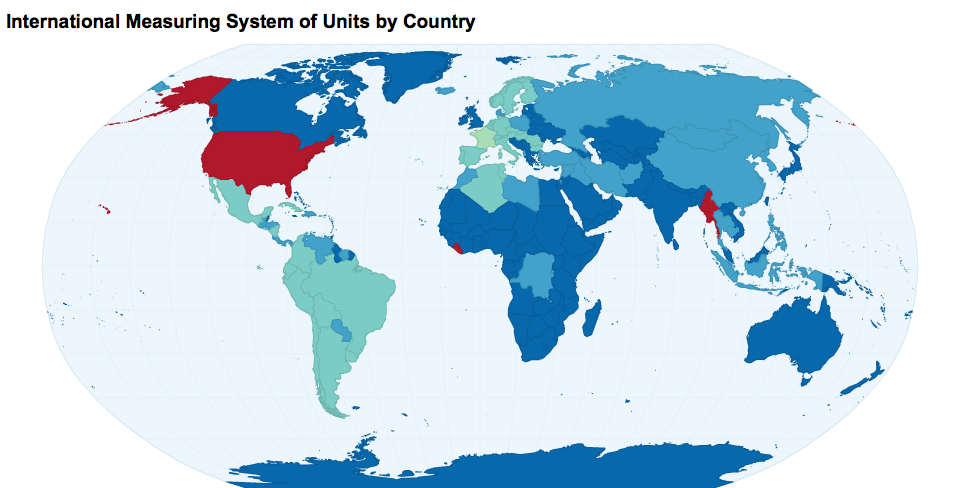Adopting a different way of doing things – one that undermines the implicit way your mind has been conditioned to think about something – is painful. I’m not sure that there is much getting around that. When you have a bandage or plaster applied to a wound, you can peel it off slowly and feel every uncomfortable pull sequentially as unique signals, or you can clench your teeth and rip it off. The latter method tends to be the way people prefer to deal with an inevitable negative outcome. Absorbing all the cost at once compounds it into just one distinct negative experience rather than many, but this single experience of discomfort is generally not equal to the sum of the individual elements of discomfort that it is comprised of. As an aside, notice that the opposite is true of positive events – we like to spread these out because this gives us more utility than one large positive amalgamated chunk.
What on earth has that got to do with the title?!
Good question. I wanted to set this general quirk of human behaviour in your mind before I make a recommendation or assertion based upon it. Now let me explain my frustration.
Imperial units of measurement
The imperial system seems to be the product of lots of individual bits of intuition and familiarity with no underlying idea with which to tie these bits together. Measures were based on lengths, masses etc. of relatively available objects in one’s environment. When there isn’t any conceptual idea involved, this is quite a natural thing to do. Unfortunately, however, this means that standardising and converting these measurements between each other becomes rather unintuitive (16 ounces to a pound but 14 pounds to a stone?!).
Another issue is that the intervals don’t always suit people working with specific things. People designing something for a horse might want to use an equine reference point rather than a human one. Indeed, as a result of this, there are various derivative imperial measures that aren’t in general use but are used in specific applications. Once again, this makes comparisons between things from different domains quite difficult. For example, an aune is a measure of fabric, but it also takes value into account. So an aune of cotton would be a different length to an aune of silk – meaning that this unit is more akin to price than length. If it seems unnecessarily confusing, that’s because it is!
The metric system
Of course, as we all know by now, the metric system gets around these issues by offering a stable set of measures that are consistent across applications. Furthermore, there is an underlying principle involved – the base 10 number system. This obviously makes it easier to interchange and calculate things because we are using a number system that we have adopted as the core of our arithmetic and use as our quantitative ‘language’.
Adoption
So, it seems like a pretty good idea for us to use this integrated system, rather than a fragmented and unclear system of traditional English measures. And, yet, even though the metric system actually started out in France in 1799, we have still not all come around to this thinking.

The above chart shows the countries who haven’t officially adopted the metric system in red. Count them. That’s right, just three: USA, Liberia and Myanmar (Burma). This sort of seems like a positive thing if you support adoption of the metric system, right? Well, maybe. The problems are, firstly, that the US is rather influential in the global economy, and the fact that they refuse to officially recognise the metric system makes it a bit of a pain in the butt when almost every other country imports their products. Secondly, some countries that have officially assigned the metric system as their system of measurement have not fully transitioned away from the imperial system. Why is this a problem? Isn’t this the best of both worlds? Well, no. It just serves to cause confusion because the intuitive reference points we form are now a mish-mash of metric and imperial units. I say ‘we’, because the UK is probably the worst offender in this respect. I am not proud of the fact that I can’t picture heights in anything other than feet and inches, and yet I am clueless to volumes of drinks unless they are in millilitres. This is even worse than the US, who at least have a consistently backward set of measurements (as ridiculous as that sounds).
Tearing off the bandage – reference points
The key term in the previous paragraph was reference point. Randall Munroe of the infinitely popular and amusing xkcd webcomic seems to understand this all too well:
If we want to transition to a new way of thinking about things, we need to break down the old anchors upon which we make mental comparisons, and replace them with new ones in the new system of thinking. In the present case, basically, we need to learn how to visualise things in metric terms. Going back to my opening bandage analogy then, the best way to do this would be to uniformly ‘rip it off’ by replacing all mention of imperial units, at least for any official trading or research purpose (I’m not suggesting we should tap into people’s phones and send anyone who utters the word ‘yard’ into Guantanamo, however amusing it might sound.). This is probably easier to do, in some senses, for the US who have remained officially imperial. But it is more challenging, and therefore, even more important that ‘hybrid’ countries like the UK do the same thing.
As a somewhat crude analogy, let’s look at a rather generalised story of the philosophies of Microsoft Windows and Apple’s Mac OS. Windows has clearly been the most popular desktop operating system for a couple of decades, by a rather long way. Because of this, when MS updated Windows, they wanted to make sure that people with newer versions could still use programs that they already had. The perpetuation of this philosophy meant that a lot of inefficient aspects of the original operating system had survived when much better alternatives were readily available (note that they have recently ditched at least some of these things starting from Vista, which pissed people off in the short run, but has led to a better OS in the longer term). Apple’s way of doing things was much more brutal, and caused people inconvenience in the short run. They would render older technology obsolete (actually in hardware terms as well as software terms) and refuse to support these ‘legacy’ features. This caused some pain and misery, but ultimately meant that they had a much more future proof system for the longer term.
In case of operating systems, I don’t want to emphasise that one company’s approach was totally ‘better’. MS did what they did probably because more people relied on their systems. However, unlike the computer industry, a new form of measurement doesn’t come along too often, and once established, remains embedded within the thinking of many generations. So there is no risk of the repeated transitional discomfort that, for example, Apple may have caused in their approach to hardware support.
So why hasn’t the full transition happened yet?
It seems like it’s mostly to do with the aspects of human nature that value tradition, combined with the fact that change has short term adjustment costs which are ‘painful’ in some sense. I say this, because looking at some of the arguments against a blanket measurement change, none seem to be particularly grounded in logic. Complaints such as ‘not very nice numbers when we convert round imperial units to metric units’ scream of ‘resistance to change’ rather than ‘a realistic criticism’. The imperial system has its place in history, it was useful at one time and it is good to know of this. But that’s what museums are for. One cannot ignore a largely superior system solely because of nostalgia.
The adjustment cost problem is made worse by modern democratic governments. Because it is in their political interests to achieve short term popularity, schemes which bear short run costs and only realise their benefits after power is lost are extremely undesirable. As terrible as it may sound, a dictatorial regime is much more likely to successfully implement such schemes. But then again, a good deal of countries are already fully metric. So why do we continue to make life difficult for ourselves and everyone else? If you are in a country that still insists on using imperial units, this might be a question you want to ask to your representatives in power.


